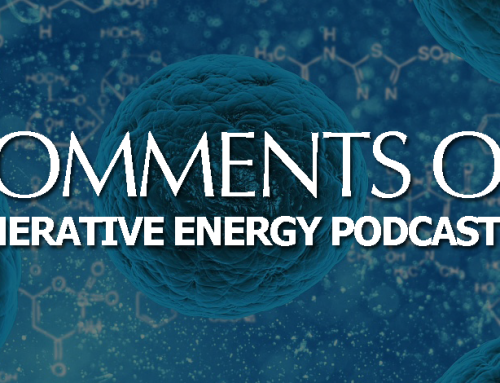Eating Like A Mouse Got You Feeling Run Down?
Hey, I’m burning fat so why do I feel so tired and sluggish? Well, the short answer is that your body does not want to starve. As fat cells are depleted they release leptin which slows down your metabolism until the fat is restored.
But to understand the total impact on your body lets start with a little bit of history. The Minnesota Starvation Experiment of 1944. This study was conducted for the US military to aid with rehabilitation of famine victims in Europe and Asia following World War II. Healthy, normal weight men underwent a 24 week 1800 calorie a day diet in order to measure the effects of calorie restriction.
Let’s just pause more a moment. They used 1800 calories a day to induce famine. Considering how many diets I have seen recommending less than that, I was a bit surprised with this number.
The study concluded that restrictive dieting significantly increases severe emotional distress and depression. Dieting causes a pre-occupation with food during the diet and the recovery phase, a significant decrease in metabolism, and may cause edema in the extremities.
Many of the study participants who were previously healthy developed eating disorders such as anorexia and bulimia. A key finding of the study was that dieters need both physical nourishment and psychological training in order to recover from the dieting process.
Let’s look at how this applies today. The autonomic nervous system regulates the body’s unconscious actions. It’s comprised of two subsystems; the sympathetic nervous system and the parasympathetic nervous system. The sympathetic nervous system’s primary process is to initiate the flight or flight response in the body. While the parasympathetic nervous system’s primary process is maintenance of the body.
Throughout the day these two systems should trade off dominance as we react to stimulus and then take time to recover. But in our society it is extremely common to see people exhibiting signs of chronic sympathetic dominance in which they have a lot of anxiety.
Additionally, instead of the gradual passing of control that should occur between the two systems a lot of people have more dramatic swings that can be seen in emotional reactions going from mania to extreme fatigue.
To make matters worse a low-metabolic rate works to constantly suppress the parasympathetic nervous system contributing to the chronic elevation of stress hormones which in turn lead to low-metabolic rate and a vicious cycle has begun.
Thyroid is a principle hormone of the parasympathetic nervous system, and cortisol is a principle hormone of the sympathetic nervous system and as one increases the other should decrease back and forth.
The most common disruptor of this cycle is – you guessed it – dieting. Dieting lowers thyroid and raises cortisol. When the body is deprived of energy, and the stress load is too great the bodies reaction is to lower the resting metabolic rate in order to preserve energy.
But wait, it gets worse, as fat tissue decreases during a calorie deficit leptin releases which causes a decrease in metabolic rate, and the metabolic rate now stays suppressed until the fat energy stores are replenished plus an additional store to help get the body through the next crisis.
Now, intellectually we have all experienced this for ourselves. This is what ALWAYS happens when people diet. We see it over and over but we blame ourselves thinking we didn’t have the willpower, or some other excuse but we see this everywhere in western society.
And then here comes the anxiety, because stress hormones will rise as the metabolic rate falls, and as the body spends more time in the sympathetic dominant state the extra cortisol and adrenalin will contribute to insomnia.
As the stress load increases, so does the need for glucose. But if the glucose needs are not met the result is an increase of adrenaline to help move the stored glucose from the liver in the from of glycogen.
But if a person has a low metabolic rate, and they have a deficiency in glycogen, then the adrenaline will move free-fatty-acids instead.
And now the production of glucose comes from cortisol at the expense of muscle tissue and the thymus gland. As the muscle tissue is broken down certain amino acids cause further suppression of the metabolism.
This stress on the thymus gland also weakens the immune system and is one of the ways low metabolic rate and chronic stress contribute to frequent colds.
So if you have a low metabolism and you are low in glucose then eating a food that causes a cortisol response may actually make you feel good. But overtime it may cause wasting of the muscle, sexual problems, and mood problems.
Serotonin is an adaptive stress hormone. When we hear of serotonin we usually think of the brain. However, 95% of the serotonin in our bodies is produced in the intestine.
One of the sympathetic nervous system responses to stress is to reduce blood circulation in the extremities and the intestines. This is great if there is physical danger and we need to run away because right then we do not need to be focused on digestion.
But the effect on the intestines is that it causes poorly digested food, excess serotonin, and inappropriate levels of bacteria. This leads to increased permeability of the intestine and allows substances to directly enter the bloodstream.
One of the substances that enters the blood stream in this manner is a bacteria called endotoxin. This is normally detoxified in the lungs and liver. But is this situation, it burdens the liver and inhibits efficient thyroid T3 to T4 conversion. It also further increases serotonin production reducing the livers ability to deactivate estrogen.
Usually when we hear about estrogen it is in reference to female reproduction. However, estrogen is a shock hormone. Women do naturally have higher levels of estrogen. However, many things may cause an increase in estrogen production such as poor nutrition, stress, low thyroid or inflammation. The excess estrogen further inhibits thyroid production.
There is even more going on, but I think you get the point. When people use the law of thermal dynamics to justify the calories-in calories-out model of weight loss they fail to account for the longer term hormonal reaction.
You can see from the cascade of hormones that when the body has to choose between survival and performance it will adapt in order to survive. Even if this means sacrificing long term health for immediate survival.
Many factors go into weight loss and dieting. A healthy person who wants to drop five pounds can do so with short term calories restriction. But the further we are from our ideal weight and the longer we have been dieting, the more complicated it becomes. At Taiso Fitness we have a free class on the first Saturday of every month at 10am to help people with weight loss, stress, habits and change. Contact us to find out more.
Taiso Fitness and Nutrition
If you are looking for a unique gym experience try Taiso Fitness and Nutrition. We are Tacoma’s fitness and nutrition gym for people who want to get out of pain or improve performance, who need immediate, measurable results, and want to make educated decisions to take control of their health.
Ready to get out of pain or improve performance? Looking for a gym, personal trainer, or unique boot camp experience? Set up a complimentary consultation, or start a 21 Day Risk Free Trial. Stay up to date on the latest information through our website at www.taisofitness.com





